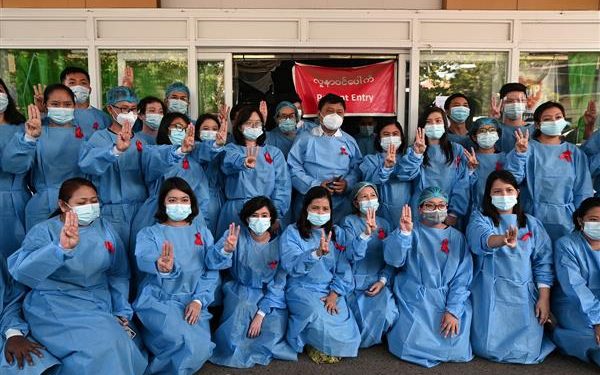By wearing red ribbons, the medical workers across Myanmar began a civil disobedience protest against Monday’s coup. They declaring that they won’t work for the new military government.
Dr. Zun Ei Phyu, who lives in Yangon, the biggest city and commercial capital said, “We want to show the world we are totally against military dictatorship and we want our elected government and leader back. We want to show them we will follow only our elected government. Not the military.”
As we know, the army takeover that ousted the civilian government of Aung San Suu Kyi over allegations of fraud in November’s elections could not have come at a worse time for a country battling a steady rise in COVID-19 cases with a dangerously inadequate health system.
Health workers in government hospitals and facilities issued a statement Wednesday opposing the coup. Some medical staff went on strike while others who continued work in government-run clinics made public their opposition to the new military rulers.
Some of those on strike have begun to volunteer at charity health clinics, many of which were shut down as a precaution against a surge in COVID-19 cases. The clinics that have remained reopen are extending their working hours so people can still receive care during the protest, Zun Ei Phyu said.
Myanmar’s early response to the pandemic mirrored that of many countries: borders were nearly completely closed, lengthy quarantines were imposed on travelers, and daily life slowed with stay-at-home orders.
It seemed to work until early September, when cases exploded from less than 1,000 to some 14,300 a month later. Now with more than 140,600 confirmed cases and 3,100 deaths, Myanmar’s fragile health system faces the perfect storm of the pandemic and the coup.



